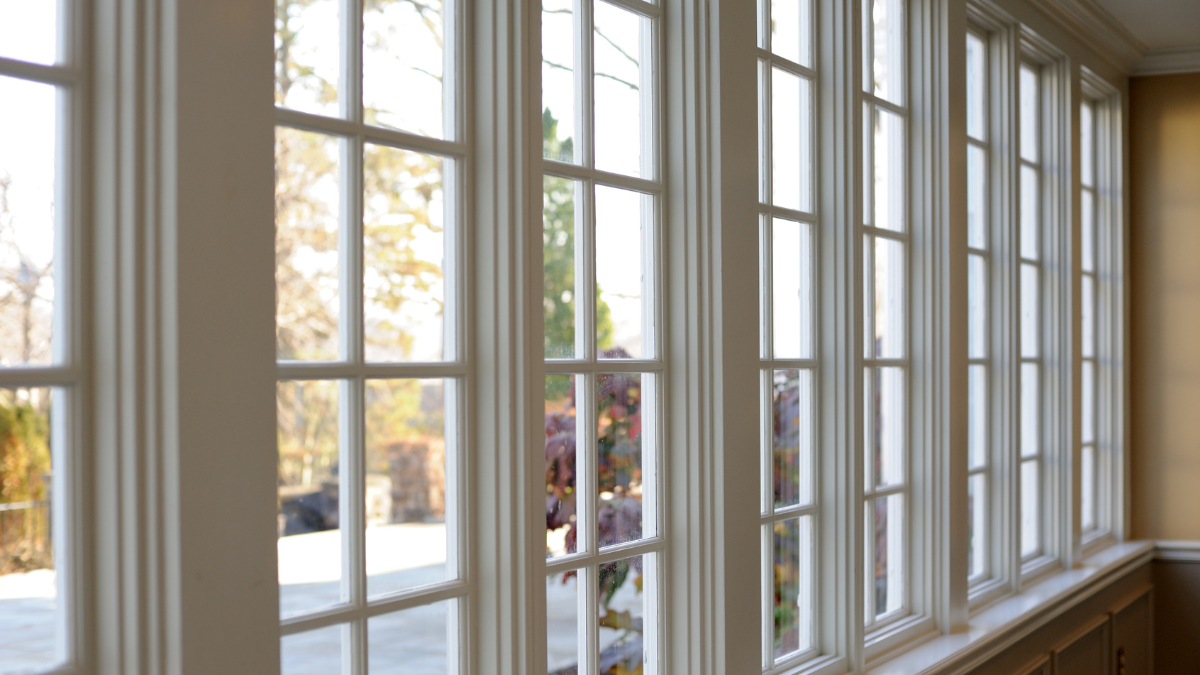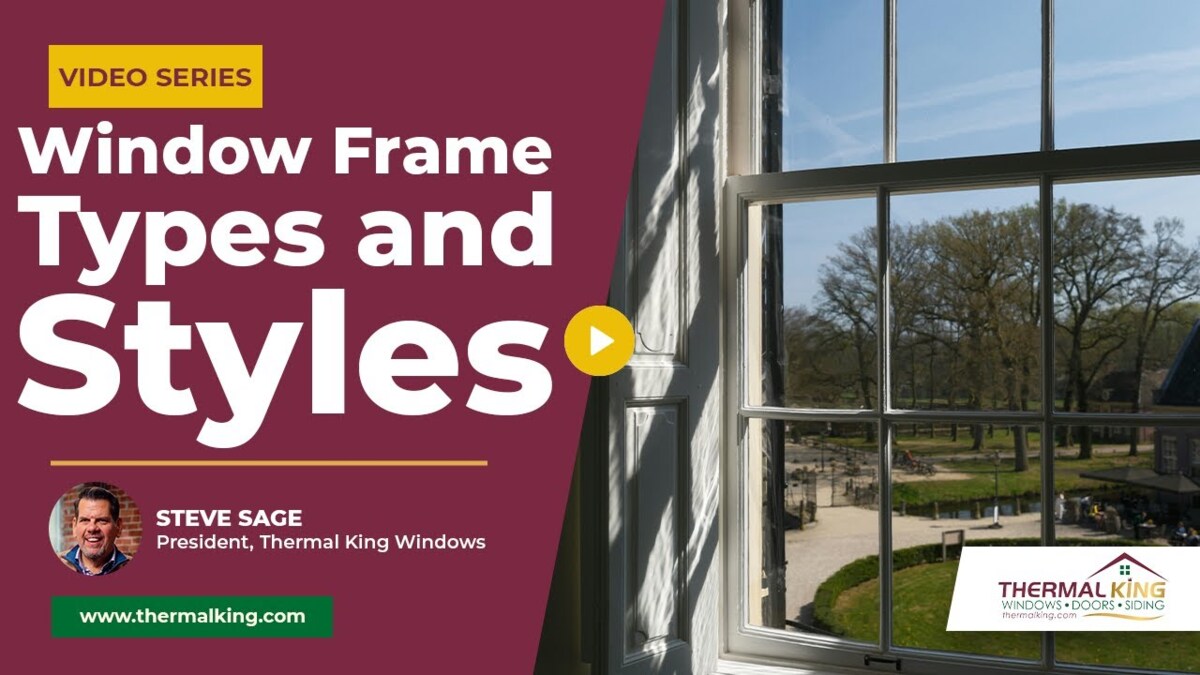When it comes to choosing the right windows for your home, it can be a daunting task given the variety of styles and functionalities available. Two popular options that homeowners often consider are casement windows and single hung windows.
At Thermal King, we want you to understand all your options before making a decision about your replacement windows. We’ve helped thousands of Lee’s Summit homeowners find the perfect windows for their home and budget.
Understanding the features, advantages, and drawbacks of each type can help determine which is best suited to meet your needs. This article explores the essential aspects of these window types, providing you with the clarity needed to make an informed decision.
Understanding the Basics of Window Types
Windows can significantly impact the aesthetics, energy efficiency, and ventilation of a home. Both casement and single hung windows serve these functions but do so in distinct ways. To choose the better option, it’s important to grasp what differentiates them.
Defining Casement Windows
Casement windows are hinged on one side and open outward, similar to how a door swings. They are typically operated by a crank mechanism, allowing for easy opening and closing. This design not only provides a clear view but also allows for maximum ventilation when opened.
One major characteristic of casement windows is their ability to seal tightly when closed, which can enhance energy efficiency. This makes them an attractive option for those looking to lower heating and cooling costs. Additionally, casement windows can be installed in hard-to-reach areas, such as above kitchen sinks, where traditional windows might be less practical. Their versatility in placement allows homeowners to maximize natural light and airflow throughout their living spaces.
Moreover, casement windows are often praised for their modern aesthetic, which can complement contemporary architectural styles. They are available in various materials, including vinyl, wood, and aluminum, allowing homeowners to choose a finish that matches their exterior decor. This variety not only enhances the home’s curb appeal but also provides options for durability and maintenance preferences.
Defining Single Hung Windows
Single hung windows consist of two sashes, with the upper sash fixed in place and the lower sash able to open and close vertically. This classic window style is commonly seen in many homes due to its traditional design and straightforward operation.
The single hung windows do not protrude outward when opened, making them ideal for areas with limited space, such as walkways or patios. Their simplicity and cost-effectiveness make them a popular choice among homeowners. Furthermore, single hung windows are often easier to clean than casement windows, as the lower sash can be tilted inward for access to both sides of the glass from inside the home, providing a practical solution for maintenance.
In addition to their functional benefits, single hung windows can be customized with various grid patterns and colors to enhance the overall aesthetic of a home. This flexibility allows homeowners to maintain a traditional look while still incorporating modern elements. They are also available in energy-efficient models, ensuring that even this classic style can contribute to a home’s overall energy performance, making them a viable option for those conscious of their environmental footprint.
Key Features of Casement and Single Hung Windows
The differences between casement and single hung windows extend beyond how they open. Understanding their unique features can further assist in making the right choice for your home.
Unique Characteristics of Casement Windows
Casement windows offer various key characteristics that set them apart. For instance:
- Optimal Ventilation: Since they can be fully opened, casement windows allow for maximum airflow, which is beneficial when trying to cool down a room.
- Better Views: With no vertical dividers obstructing the view and a clean, unobstructed glass surface, casement windows can provide clearer sightlines to the outdoors.
- Enhanced Security: When closed, the design creates a tighter seal, making them harder to pry open from the outside.
Additionally, casement windows are often praised for their energy efficiency. The tight seal they create when closed can help minimize air leaks, which can lead to lower heating and cooling costs over time. Many modern casement windows are equipped with double or triple glazing, further enhancing their insulation properties. This makes them particularly appealing for homeowners looking to reduce their carbon footprint while maintaining a comfortable indoor environment.
Unique Characteristics of Single Hung Windows
Single hung windows also come with their own set of unique characteristics, including:
- Simplicity of Operation: The lower sash moves up and down easily, making them user-friendly, especially for families with children.
- Cost-Effective: Generally, single hung windows are less expensive than casement windows, making them a budget-friendly option.
- Space-Saving: They don’t extend outward when opened, which is beneficial for spaces constrained by walkways or neighboring structures.
Moreover, single hung windows are often favored for their classic aesthetic appeal. Their design fits seamlessly into various architectural styles, from traditional to contemporary, making them a versatile choice for many homeowners. Additionally, maintenance is typically straightforward; since only the lower sash moves, cleaning the exterior glass is generally easier compared to other window types. This ease of upkeep, combined with their affordability, makes single hung windows a practical option for those looking to enhance their home’s curb appeal without breaking the bank.
Pros and Cons of Casement and Single Hung Windows
Every window type has its advantages and disadvantages. Analyzing these points can help clarify which option best aligns with your needs and lifestyle.
Advantages of Casement Windows
Some notable advantages of casement windows include:
- Superior Ventilation: Their ability to open fully allows for greater airflow.
- Energy Efficiency: The tight seal when closed contributes to energy savings.
- Versatility: They can be installed in various configurations and are suitable for different architectural styles.
Disadvantages of Casement Windows
However, casement windows also come with some drawbacks:
- Cost: They are generally more expensive to purchase and install compared to single hung options.
- Maintenance: The crank mechanism can require maintenance, and the window frame’s outward design may accumulate dirt and debris over time.
- Space Requirements: Since they open outward, you need to ensure there is enough space outside for them to operate smoothly.
Advantages of Single Hung Windows
Single hung windows also present several advantages:
- Affordability: They are often less expensive both in terms of materials and installation costs.
- Traditional Look: Their classic style fits well within many home designs, particularly in historical and traditional settings.
- Low Maintenance: Fewer moving parts mean reduced maintenance over time.
Disadvantages of Single Hung Windows
On the flip side, single hung windows have their own set of disadvantages:
- Limited Ventilation: Only the lower sash opens, which may limit airflow compared to casement windows.
- Potential Safety Risks: The operation of the lower sash could pose a hazard to young children if not monitored.
- Less Efficient Seal: The fixed upper sash may not seal as tightly as casement windows, leading to potential drafts.
When considering the installation of either window type, it’s also essential to think about the climate in your area. For instance, in regions that experience heavy winds or storms, the robust sealing of casement windows can provide an extra layer of protection against the elements. Additionally, the ease of operation for casement windows can be particularly beneficial for hard-to-reach areas, such as above kitchen sinks or in high-ceilinged rooms. Homeowners may find that the ability to fully open these windows makes cleaning a breeze, as they can be washed from the inside without the need for ladders or special equipment.
Conversely, single hung windows may appeal to those who prioritize simplicity and cost-effectiveness. Their straightforward design can be a significant advantage in terms of installation time, making them a popular choice for quick renovations or new builds. Furthermore, the fixed upper sash can provide a more stable structure, which may be advantageous in areas prone to seismic activity. For homeowners looking to maintain a traditional aesthetic, single hung windows can seamlessly blend with classic architecture, enhancing the overall curb appeal of the home while remaining budget-friendly.
Factors to Consider When Choosing Between Casement and Single Hung Windows
When making the choice between casement and single hung windows, it’s essential to consider various factors that could impact your decision.
Consider Your Home’s Architectural Style
The design aesthetic of your home plays a crucial role in the selection of windows. Casement windows often complement modern and contemporary homes, providing a sleek look, while single hung windows may be more appropriate for traditional or colonial-style homes. Assessing your home’s architectural elements can help guide your choice. For instance, if your home features intricate moldings or classic brickwork, single hung windows can enhance those details, offering a timeless appeal. On the other hand, if your residence boasts clean lines and minimalistic features, casement windows can seamlessly integrate with the overall design, adding a touch of sophistication.
Think About Window Functionality
Consider how you intend to use the windows. Casement windows are great for allowing maximum airflow, making them suitable for kitchens or living areas where ventilation is essential. Their outward opening mechanism enables you to catch breezes from any direction, which can be particularly beneficial in warmer climates. Conversely, single hung windows might be better suited for areas where space is limited, such as hallways or smaller rooms. They also offer a more straightforward operation, making them ideal for homes with children or elderly residents who may find it easier to use a window that slides vertically rather than cranking open a casement window.
Evaluate Energy Efficiency
Energy efficiency should be a significant factor in your decision process, especially with rising energy costs. Casement windows generally have superior energy-efficient qualities due to their strong seals. The way they close tightly against the frame helps minimize air leaks, which can be a major advantage during extreme weather conditions. However, if your budget is a primary concern, single hung windows could still be efficient options when properly installed and maintained. Many manufacturers now offer single hung windows with double or triple-pane glass, which can significantly improve insulation and reduce heating and cooling costs, making them a more appealing choice for budget-conscious homeowners.
Assessing Cost Differences
Finally, cost is an inevitable consideration. If you are working on a tight budget, single hung windows may be the most viable option due to their lower purchase and installation costs. They are often simpler to manufacture and install, which can lead to savings in both materials and labor. In contrast, if budget allows and energy efficiency is a priority, casement windows may provide greater long-term savings. While the initial investment may be higher, the potential for reduced energy bills and increased home value can make them a prudent choice in the long run. Additionally, consider the maintenance costs associated with each type; casement windows may require more upkeep due to their mechanical components, while single hung windows typically have fewer moving parts, leading to lower maintenance expenses.
Expert Window Replacement in Lee’s Summit, MO
The choice between casement and single hung windows will depend on a variety of factors including budget, aesthetics, functionality, and energy efficiency. By understanding the unique features, distinguishing advantages, and disadvantages of each window type, you can find the right option that best suits your home and lifestyle needs.
If you’re ready to replace your windows, contact our experts at Thermal King today for a free consultation!




